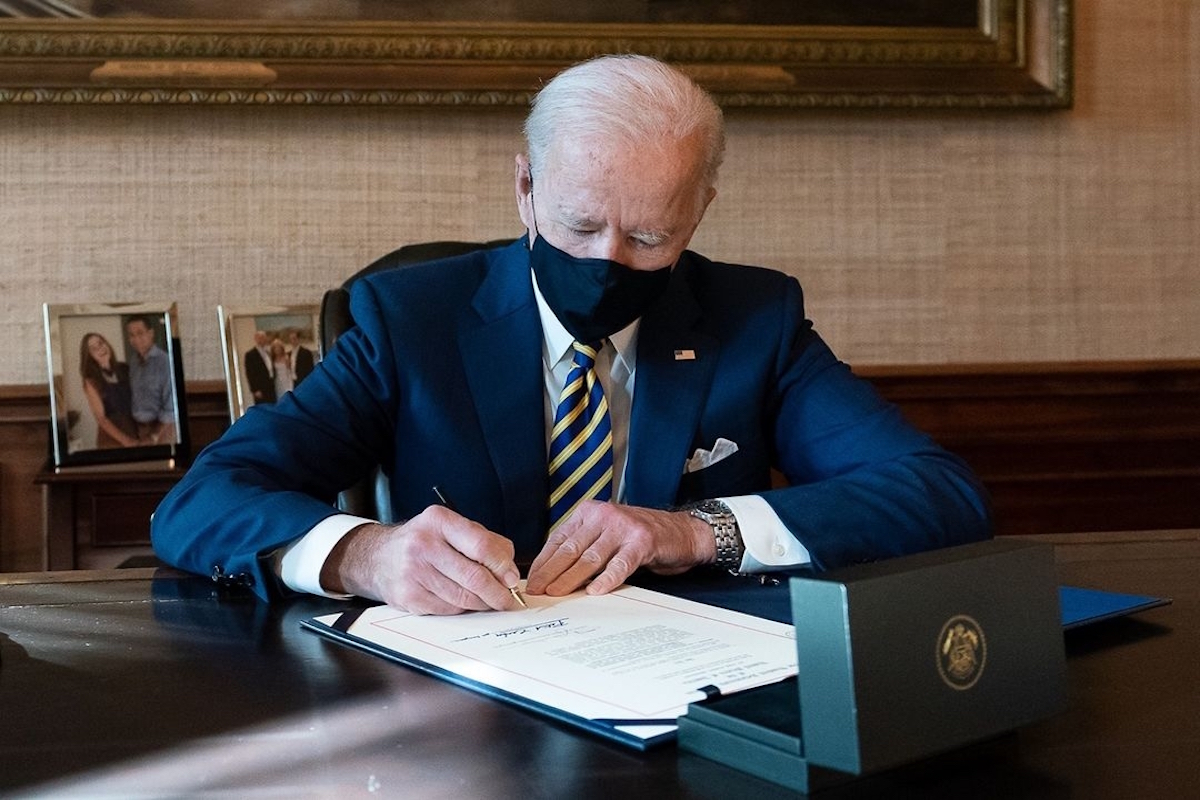Biden directed US military to shoot down Iranian missile heading towards Israel: Report
President Biden, along with Vice President Kamala Harris are monitoring the Iranian offensive against Israel and recieving regular updates from officials.
The signing on Thursday came one day after the House of Representatives approved the measure in a starkly partisan vote of 220-211. Last week, the evenly split Senate narrowly passed the bill by a vote of 50 to 49, Xinhua news agency reported.

(Image:IANS)
US President Joe Biden has signed the $1.9 trillion Covid-19 relief bill into law, after weeks of partisan fighting in the Congress, marking the first legislative victory for Biden since he took office.
The signing on Thursday came one day after the House of Representatives approved the measure in a starkly partisan vote of 220-211. Last week, the evenly split Senate narrowly passed the bill by a vote of 50 to 49, Xinhua news agency reported.
Advertisement
Meanwhile, a survey recently released by the Pew Research Center showed that there is broad public support for the relief package, with 70 per cent of Americans saying they favour the legislation.
Advertisement
“The US, in the Congress is more polarized than the American people,” Jeffrey Sachs, economics professor at Columbia University and senior UN advisor, told Xinhua on Wednesday.
“The American people have actually a broad consensus, let’s get on with our lives. Let’s have the control of the pandemic. Let’s have an increased role of government, but the political divide between the Democrats and Republicans is very strong,” Sachs said.
The measure, the sixth coronavirus-related legislation since the outbreak more than a year ago, includes funding for Covid-19 vaccination and testing, extra unemployment benefits, direct payments to working Americans, support for small businesses, state and local governments, along with schools.
Calling it a historic legislation with overwhelming support from Americans, Biden said at the White House Oval Office that the bill will help rebuild the “backbone of this country”.
The signing of the bill came a few hours after the Labor Department reported initial jobless claims last week decreased by 42,000 to reach 712,000, following an increase in the previous week.
Meanwhile, the total number of people claiming benefits in all programs — state and federal combined — for the week ending February 20 rose by 2 million to 20.1 million, indicating continued disruption to the labor market by the Covid-19 pandemic.
The relief bill includes a $300 weekly federal unemployment benefit through September, instead of $400 in an earlier version approved by the House. It also includes a new round of up to $1,400 of direct payments for Americans.
Despite strong support from Democratic lawmakers, the bill might be a little disappointing to some progressives, who advocated for the federal minimum wage to be raised to $15 an hour, a provision that wasn’t included in the final package.
President Biden, as well as Treasury Secretary Janet Yellen, have argued that bold action is needed to support the economic recovery and avoid lasting scars. Some economists, however, have warned that the new relief package might be too big, and could bring risks, such as setting off inflationary pressures, and undermining global financial stability.
Advertisement